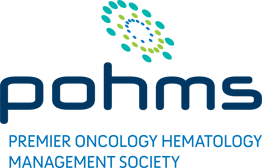Complete Story
01/28/2014
COA and ASCO Issue Joint Statement on Oncology Payment Reform
Last week, COA and ASCO issued a joint statement on payment reform in cancer care. The statement results from collaboration between the two organizations, in concert with AmerisourceBergen/ION and McKesson/US Oncology, to arrive at principles to guide the evolution of health care payment systems that support high-quality, high-value cancer care. The goal is to improve the lives of individuals with cancer, in part by developing and supporting payment systems based on evidence-based medicine and measures of quality and value in cancer care.As stated in the Principles to Guide the Evolution of Health Care Payment Systems that Support High-Quality, High-Value Cancer Care issued by COA and ASCO, "Traditional reimbursement models currently do not provide adequate support for the care coordination and complex disease management necessary for delivery of high quality, high value care in oncology. Improving the quality and value of the care provided to individuals with cancer may require changes that ensure adequate financial, administrative and data support for oncology providers to engage in new approaches that reduce the frequency and severity of clinical complications." COA has been working over the past two years on the Oncology Medical Home model and an associated payment reform model. A task force of community oncologists and practice administrators have developed a model based on measures of quality, patient satisfaction, and value that moves to a hybrid fee-for-service and shared savings payment system and eventually, after data gathering and piloting, to an episode-of-care based model. ASCO has been working on a model of episode-type monthly service payments that simplifies the current Medicare coding system. COA and ASCO, along with AmerisourceBergen/ION and McKesson/US Oncology, are now working on a unified model of payment reform that is intended to be adaptable to Medicare and private insurance. The goal is to put forth a unified model based on the principles issued by the two organizations and that allows for flexible for oncology providers to use and modify based on their level of readiness and goals in advancing oncology payment reform.
This is a critical time for community oncologists to step forward and lead in developing and implementing payment reform, and measuring quality and value that is relevant specifically to cancer care. The pressures of the Medicare sequester cut to payments for cancer drugs and additional oncology-specific Medicare fee schedule reimbursement cuts presents a challenging environment for community oncology practices. That is why aggressive, proactive, and unified action on payment reform is so critical at this time.
You will hear more about this unified payment reform initiative in the next few months. To access the joint COA/ASCO statement, click here.


